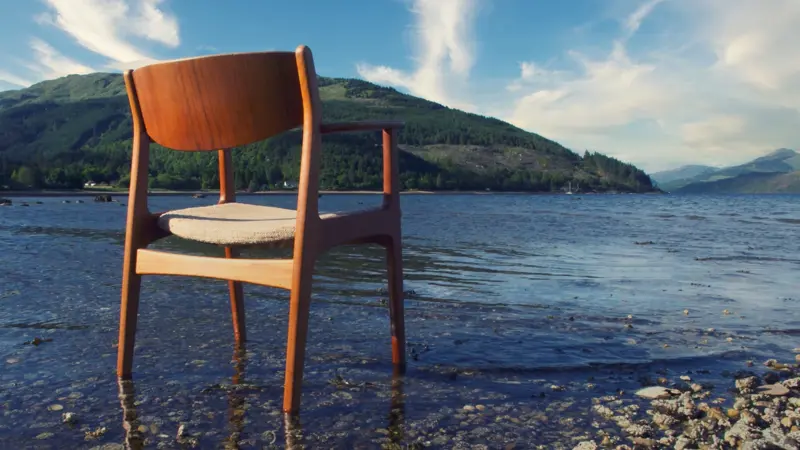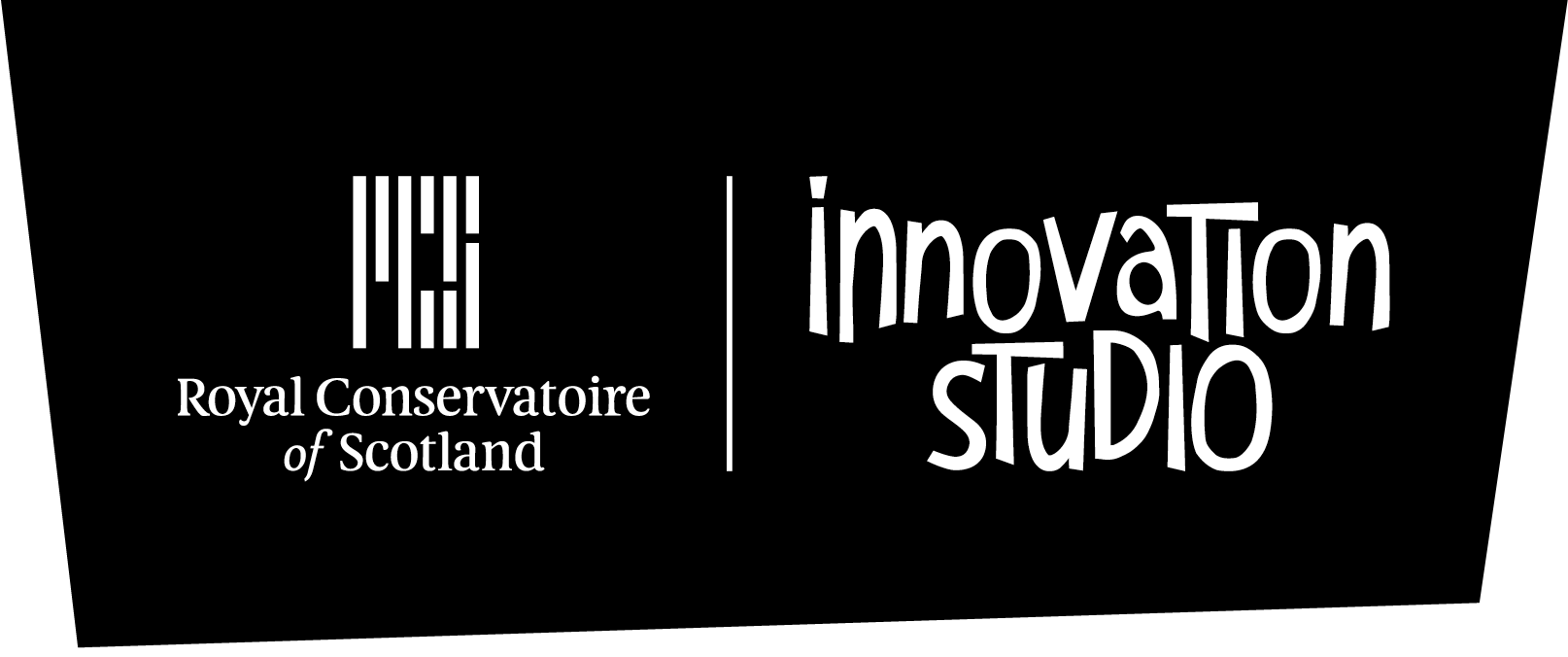At a Glance
During the pandemic, Ben started collaborating with RCS lecturer Eve Jamieson to develop Empty Chair, a verbatim theatre project that explores themes of loss, loneliness, and isolation. Verbatim theatre is a form of documentary theatre constructed from the words and lived experiences of real people, examples include Gregory Burke’s acclaimed Black Watch.
The duo’s goal was to create a socially engaged verbatim theatre research model to facilitate honest, unfiltered conversations. They wanted to bring together an intergenerational group of artists, community participants, and creatives to explore and tackle the increasing isolation and loss exacerbated by modern society.
Initially struggling to sell the benefits and innovative nature of the project, Ben successfully applied for Innovation Studio funding to support early-stage R&D and did mapping sessions to explore his networks and the narratives around his project. With a clearer vision and pitch, he secured additional funding from Creative Scotland and in-kind support from An Tobar & Mull Theatre and the Citizens Theatre in Glasgow.
As the project progressed, his Innovation Studio award was able to fund two trips to the Isle of Mull, the first to conduct interviews and the second to workshop a work-in-progress script, culminating in a scratch performance for everyone who contributed to the project.
The Creative Exploration
In 2022, Ben and Eve held free verbatim theatre workshops for participants over the age of 50, initially in Glasgow and then on the Isle of Mull. They worked with theatre companies, choirs, poetry collectives, and talking groups to offer creative learning opportunities to an underserved demographic. Each workshop was unique, setting the course for the project’s flexible verbatim approach.
This was followed by individual interviews with participants from rural communities, which took place in village halls, theatres, cottages, galleries, even in fields and on beaches. People welcomed the theatre makers with openness, generosity, and honesty, expressing real gratitude for the invitation to talk. Ben and Eve collected 50+ hours of interviews, written testimony, and a wealth of evocative poetry.
Back in Glasgow, the artists started to review all the material they had captured, knowing they had something special on their hands. They began the project wrestling with their own personal experiences of loss and isolation and were struck by the many ways these profoundly human themes were reflected in conversations with the communities.
Masses of weighty material with no compelling link is often a key dramaturgical challenge inherent to verbatim theatre. In other words, what’s the story? And how can it be told responsibly, respecting the integrity of participants’ words without betraying their confidence?
Ben and Eve found inspiration for their solution in Werner Herzog’s concept of ‘ecstatic truth’ which admits that a carefully crafted fictional story can better reflect reality's true essence than reality itself.
They devised a quasi-fictional narrative using the verbatim text: the story of Rebecca, a woman who travels to an island to process a loss from her past, much like the collaborators’ own journey. Through encounters with local creatives and the landscape, Rebecca reaches a place of acceptance and finds the courage to talk.
For the second stage of the project, Ben and Eve returned to Mull with a group of actors to develop the piece, reconnecting with the community groups, participants, and landscape that inspired the narrative.
They planned to work towards two parallel artistic outputs: a live theatre performance with an ensemble of actors and a pre-recorded audio guided walk where audiences follow Rebecca’s journey across the island while listening to each encounter unfold.
For one week, Ben and Eve worked with four talented performers and various community groups, conducting creative experiments to evolve content and form. A filmmaker also joined to document the work and create a visual record illustrating the cyclical process of listening and sharing.
On the final day of their trip, two years after community creatives and participants had first entrusted the team with their words, it was finally time to present the imagined story back to them. Ben and Eve were nervous. They recalled every connection, conversation, and collaboration they had shared with individuals. Even though the 45-minute scratch performance was still a work in progress, they knew that the project's continuation hinged on their endorsement.
In the end, the sharing exceeded the theatre makers’ expectations. Audience members were delighted to hear their words on stage. Moved by the story, some told them the piece had inspired them to continue their own creative practice. There was a sense that the narrative captured the island's spirit, particularly the importance of nature, poetry and singing. Although the team didn’t have time for all the creative experiments originally planned, the week on Mull was a huge success.
Three years into the project (effective and ethical verbatim work necessitates time and care), Ben and Eve have grown immensely as artists and fostered enduring relationships with the local communities. They facilitated opportunities to engage with a lesser-known form of theatre and refined their own verbatim practice. Most importantly, they counteracted the negative effects of the themes they sought to explore by listening and talking to isolated communities.
Ben and Eve have already been invited back to Mull for another development period and further community engagement to fully realise the narrative and prepare the piece for production.
Innovation to their Practice
Ben and Eve dedicated countless hours to community engagement, developing Empty Chair with ethical rigour. Using specialist interview, facilitation, and counselling skills, they fostered meaningful human connections and supported mental wellbeing for those living in remote areas with little social contact.
Although time-consuming, the project has been transformational for the artists and impactful for this rural Scottish community.
Exploring the untapped potential of a niche form of theatre, the project expanded their approach to artistic creation. By bringing together the strengths of verbatim theatre with the needs of Mull’s communities in the aftermath of a global crisis, Ben and Eve created something truly innovative.
Dive Deeper

More Case Studies
Contact us
If you’d like to find out more about Innovation Studio, our work and how to get involved, get in touch, we'd love to hear from you.

Sign up for our newsletter
Sign up for our newsletter and be the first to know about upcoming events, opportunities and news.












